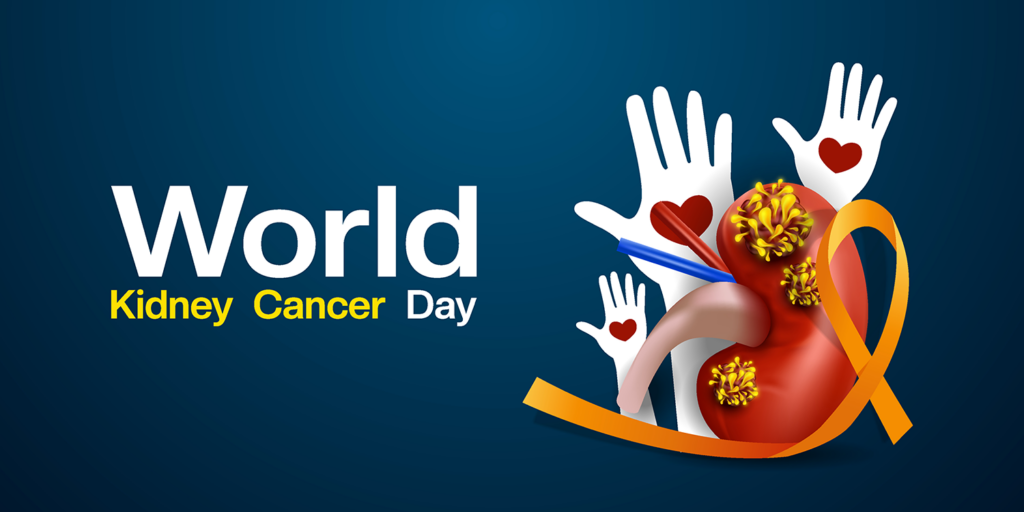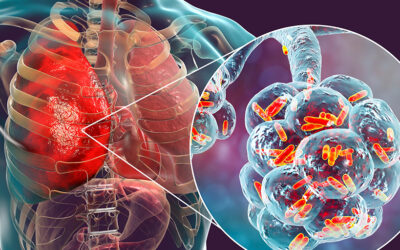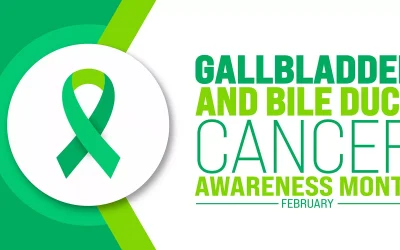World Kidney Cancer Day: Raising Awareness to Support Early Detection

Kidney cancer often goes unnoticed until it has progressed to an advanced stage. That’s because symptoms rarely appear in the initial stages, and when they do, they are often mistaken for other health problems. This delay in diagnosis can limit treatment options and affect outcomes. Despite medical advancements, awareness about kidney cancer remains low in many parts of the world, which led to the inception of World Kidney Cancer Day – a day observed to increase awareness about this disease and emphasize the importance of timely screening. In this blog, we’ll look at why this day matters, explore key facts about kidney cancer, and discuss how it is diagnosed and treated. But first, let’s take a closer look at how World Kidney Cancer Day came about.
Table of Contents
ToggleThe History of World Kidney Cancer Day
World Kidney Cancer Day was launched in 2017 by the International Kidney Cancer Coalition (IKCC), a global network of patient organisations dedicated to improving the lives of people affected by kidney cancer. The day was created in response to the growing need for more public awareness, earlier diagnosis, and better access to care for kidney cancer patients worldwide.
Since its launch, World Kidney Cancer Day has been observed every year in June, with each year focusing on a different theme or message, ranging from patient experiences and treatment access to the importance of early detection and support systems. The aim is to bring together patients, caregivers, doctors, and advocacy groups to share information, challenge stigma, and encourage timely action.
World Kidney Cancer Theme 2025
The theme for World Kidney Cancer Day 2025 is “Show your kidneys some love.” As part of the 2025 initiative, the IKCC has provided resources highlighting three essential kidney health checks:
- Blood Pressure Monitoring: High blood pressure can strain the kidneys, while low kidney function can elevate blood pressure
- Urine Tests: Checking for protein levels can indicate kidney health status.
- Blood Tests: Measuring creatinine and estimating the glomerular filtration rate (eGFR) helps assess how well the kidneys are filtering waste.
World Kidney Cancer Day 2025 will be observed on Thursday, 19 June 2025. The IKCC is hosting a Global Patient & Carer Symposium on that day, featuring discussions on kidney health management for those living with kidney cancer.
What Increases the Risk of Kidney Cancer?
Kidney cancer doesn’t always have a single known cause, but research has identified several factors that may increase the likelihood of developing it. Some of these are related to lifestyle and long-term health conditions, while others involve genetic and environmental influences.
Smoking
Tobacco use is one of the most well-established risk factors for kidney cancer. Smoking introduces harmful chemicals into the body, many of which are filtered through the kidneys. Over time, this can damage kidney tissue and increase the chance of cancerous changes. Studies suggest that smokers may be twice as likely to develop kidney cancer as non-smokers.
Obesity
Excess body weight is linked to hormonal imbalances and metabolic changes that can encourage abnormal cell growth. People who are obese have a higher risk of renal cell carcinoma, the most common type of kidney cancer. This link is particularly strong in women, though it affects both sexes.
High Blood Pressure (Hypertension)
Chronic high blood pressure can damage blood vessels throughout the body, including those in the kidneys. It’s still unclear if the risk comes from the condition itself or from long-term use of certain medications to control it, but either way, people with hypertension are more likely to be diagnosed with kidney cancer.
Family History and Genetic Conditions
Although most kidney cancers are not inherited, having a close family member with the disease slightly raises the risk. Certain inherited syndromes significantly increase the chances of developing kidney cancer. These include:
- Von Hippel–Lindau (VHL) disease
- Hereditary papillary renal cell carcinoma
- Birt-Hogg-Dubé syndrome
These conditions are rare but important to consider, especially in younger patients or those with a strong family history. Chronic Kidney Disease and Long-Term Dialysis
People with reduced kidney function or those undergoing dialysis for several years have a higher chance of developing kidney cancer. The risk increases with the length of time on dialysis, as long-term stress on the kidneys can lead to cellular changes and cyst formation, some of which may turn cancerous.
Exposure to Harmful Substances
Certain chemicals used in industrial work environments have been linked to a greater risk of kidney cancer. One such chemical is trichloroethylene, a solvent found in metal cleaning and degreasing products. Prolonged exposure to these substances, especially without proper protection, may contribute to cancer risk.
Age and Gender
Kidney cancer is more commonly diagnosed in adults over the age of 50. It is also nearly twice as common in men as in women. This could be partly due to higher rates of smoking and occupational exposures historically observed among men.
Certain Medications and Painkillers
Long-term use of certain over-the-counter pain relievers, especially those that contain phenacetin (now banned in many countries), has been linked to kidney damage and possibly cancer. However, this is a lesser-known risk and may depend on dosage and frequency.
What are the Signs and Symptoms to Watch For?
Kidney cancer can be difficult to detect early because it often doesn’t cause noticeable symptoms in its initial stages. Many people remain unaware of the disease until it has grown large or spread to other parts of the body. However, recognising potential warning signs can help prompt timely medical evaluation.
- Blood in the urine (Hematuria): Urine may look pink, red, or cola-coloured. Sometimes blood isn’t visible but can be detected under a microscope. Any change in urine colour should be checked.
- Persistent pain or discomfort in the side or lower back: A constant ache or pain below the ribs on one side that does not improve with rest may suggest a tumour.
- A lump or swelling near the kidney area: This may be felt through the skin if the tumour grows large enough.
- Unexplained weight loss and fatigue: Sudden loss of weight and ongoing tiredness can happen as the body reacts to cancer.
- Fever that comes and goes: Recurrent fevers without infection could be linked to the body’s response to the tumour.
- Loss of appetite and night sweats: Reduced appetite and excessive sweating at night may be warning signs
- High blood pressure and anaemia: When kidney function is affected, it may cause raised blood pressure or low red blood cell count, leading to symptoms like headaches, dizziness, or breathlessness.
How is Kidney Cancer Diagnosed?
Diagnosing kidney cancer typically involves a combination of medical history review, physical examination, and various tests. Because early kidney cancer often doesn’t cause symptoms, many cases are found during imaging tests done for other reasons.
Medical History and Physical Exam
Your doctor will begin by asking about symptoms, risk factors, and family history. A physical exam may include checking for lumps or swelling around the abdomen or sides.
Imaging Tests
These are the main tools for detecting kidney cancer:
- Ultrasound: A simple, non-invasive test that uses sound waves to create images of the kidneys. It can help identify abnormal masses.
- Computed Tomography (CT) Scan: Provides detailed cross-sectional images, allowing doctors to see the size and location of any tumours. CT scans are often preferred for diagnosis and staging.
- Magnetic Resonance Imaging (MRI): Used when CT scans aren’t suitable or to get more detailed views, especially of blood vessels and surrounding tissues.
Urine and Blood Tests
These tests help assess kidney function and may detect signs like blood in the urine or abnormal chemical levels. Blood tests also measure substances such as creatinine and estimate the glomerular filtration rate (eGFR) to evaluate how well the kidneys are working.
Biopsy
In some cases, a small tissue sample from the kidney tumour may be taken using a needle (needle biopsy) to confirm the diagnosis under a microscope. However, biopsies are not always necessary if imaging clearly shows cancer.
Staging and Grading
Once kidney cancer is confirmed, further tests may be done to determine its stage—how far the cancer has spread—and grade—how aggressive the cancer cells appear. This helps guide treatment decisions.
What are the Treatment Options for Kidney Cancer?
The choice of treatment for kidney cancer depends on several important factors, including the size and stage of the tumour, whether the cancer has spread, the patient’s overall health, and kidney function.
Surgery
Surgery remains the main treatment for kidney cancer, especially when the tumour is detected early and confined to the kidney.
- Partial Nephrectomy: This surgery removes only the tumour along with a small margin of healthy tissue, sparing most of the kidney. It is generally recommended for smaller tumours and helps preserve kidney function, which is especially important if the other kidney is damaged or removed. Partial nephrectomy can be performed through open surgery or minimally invasive laparoscopic techniques.
- Radical Nephrectomy: This involves removing the entire affected kidney along with nearby tissues, lymph nodes, and sometimes the adrenal gland. This option is chosen for larger or more invasive tumours. It may be done using open surgery or laparoscopically, depending on the case.
Ablative Techniques
For patients who may not be suitable candidates for surgery due to age or other health problems, less invasive methods can be considered:
- Cryoablation: This procedure freezes and destroys cancer cells by inserting a probe directly into the tumour. It is usually used for small tumours (less than 4 cm).
- Radiofrequency Ablation (RFA): This technique uses heat generated by radio waves to kill cancer cells, also typically used for small tumours.
These procedures are often done under local anaesthesia with imaging guidance and have shorter recovery times.
Targeted Therapy
Targeted therapy involves drugs that block specific molecules or pathways that cancer cells need to grow and survive. These drugs may be used when kidney cancer has spread (metastasized) or cannot be fully removed by surgery. Common targets include blood vessel growth factors since kidney tumours often rely on increased blood supply.
Immunotherapy
Immunotherapy drugs help stimulate the patient’s immune system to recognise and attack cancer cells. In advanced kidney cancer, immunotherapy is increasingly used alone or in combination with targeted therapy. These treatments can improve survival but may also cause side effects that require careful management.
Radiation Therapy
Radiation is not commonly used as a primary treatment for kidney cancer because the kidneys are sensitive to radiation. However, it can be helpful to relieve symptoms like pain or to treat cancer that has spread to bones or other areas.
Active Surveillance
In some cases, especially for small tumours or patients with other serious health conditions, doctors may recommend active surveillance instead of immediate treatment. This means regularly monitoring the tumour’s size and behaviour through imaging tests. If the tumour shows signs of growth or causes symptoms, treatment options can be reconsidered.
Final Words
World Kidney Cancer Day is more than just a date on the calendar. It calls attention to how quietly this disease can develop and highlights the importance of taking our health seriously before symptoms appear. Responding to that call starts with knowing where to turn. At Graphic Era Hospital, our urologists and cancer specialists focus not only on treating kidney cancer but also on identifying it early, when it’s often easier to manage. If you haven’t had your kidneys checked or are unsure about your risk, this is a good time to act and schedule a consultation with our specialists, not out of fear, but with awareness and intention.
By Specialities
- Bariatric Surgery
- Cancer Care
- Cardiology
- Dental
- Dermatology
- Diabetes & Endocrinology
- Endocrinology and Diabetes
- ENT (Ear Nose Throat)
- Eye Care
- Gastroenterology
- Haematology
- Health Awareness
- Health Care
- Health Tips
- Hematology
- Hepatology
- Internal Medicine
- Mental Health and Behavioural Sciences
- Metabolic
- Neonatology
- Nephrology
- Neurology
- Nutrition & Dietetics
- Obstetrics & Gynaecology
- Oncology
- Ophthalmology
- Orthopaedics
- Paediatric
- Physiotherapy & Rehabilitation
- Plastic and Reconstructive Surgery
- Psychology
- Pulmonology
- Rheumatology
- Spine
- Urology
Recent Posts
Need expert medical advice?
Share your details and our healthcare specialists will reach out to assist you.
By proceeding, you acknowledge and agree to our Privacy Policy, Terms of Use, and Disclaimer.



















